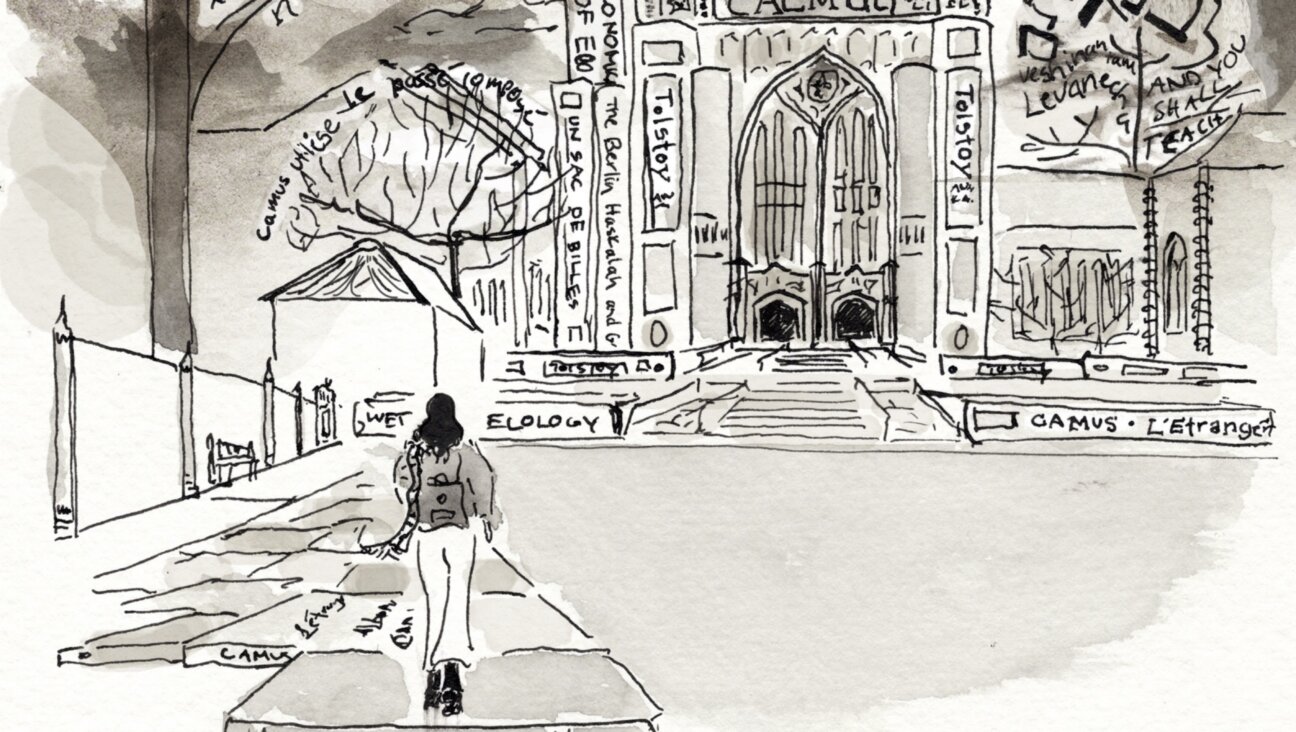Joy of Texts
There is a moment, for those who indulge, of explosive, triumphant joy, at times approaching ecstasy, during the festival of Simchat Torah, which fell October 7. It’s the moment when the reader chants the last few lines of Deuteronomy, completing the annual cycle of public Torah reading, and then begins again with “In the beginning.” It’s a triumphant sense of completion, of the year being brought to a close, and at the same time of timelessness as the circle comes around again. It’s also, if truth be told, a sense of triumph that comes from getting through another endless month of Jewish holidays stretching from Rosh Hashanah through Yom Kippur to Sukkot, with its disrupted workweeks and frantic explanations to co-workers, its never-ending festive meals and mountains of dishes to wash. The explosive sensation that comes on Simchat Torah is — let’s be honest — a feeling of joy mixed with relief.
This year the joy was tempered by the explosions heard in the Middle East. More than a few congregations began their Friday hakafot, the seven raucous circle-dances around the Torah scroll, with a silent circuit to honor the victims of the bombings in Sinai the night before.
There was a larger soberness hanging over the holiday season this year. The crisp fall air reminded many of us, especially New Yorkers and Washingtonians, of that fall day three years ago when America was attacked. Israelis were reminded of the fall day four years ago when the intifada began and their dreams began to collapse. Some were reminded, too, of the Simchat Torah night 30 years ago, in 1974, when the fledgling Gush Emunim settler movement launched its Operation Hakafot, setting up 30 new settlements overnight and launching the process that managed, as intended, to make Israel’s separation from the Palestinians all but impossible.
For all that, anyone who entered a synagogue last week could not have escaped the infectious joy that overcame the sorrows, at least for a moment. Jews remain the people of the book, and through all the trials, those values endure and sustain.
















